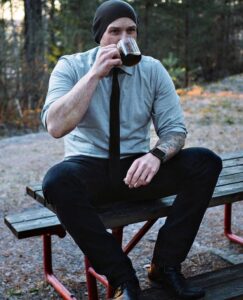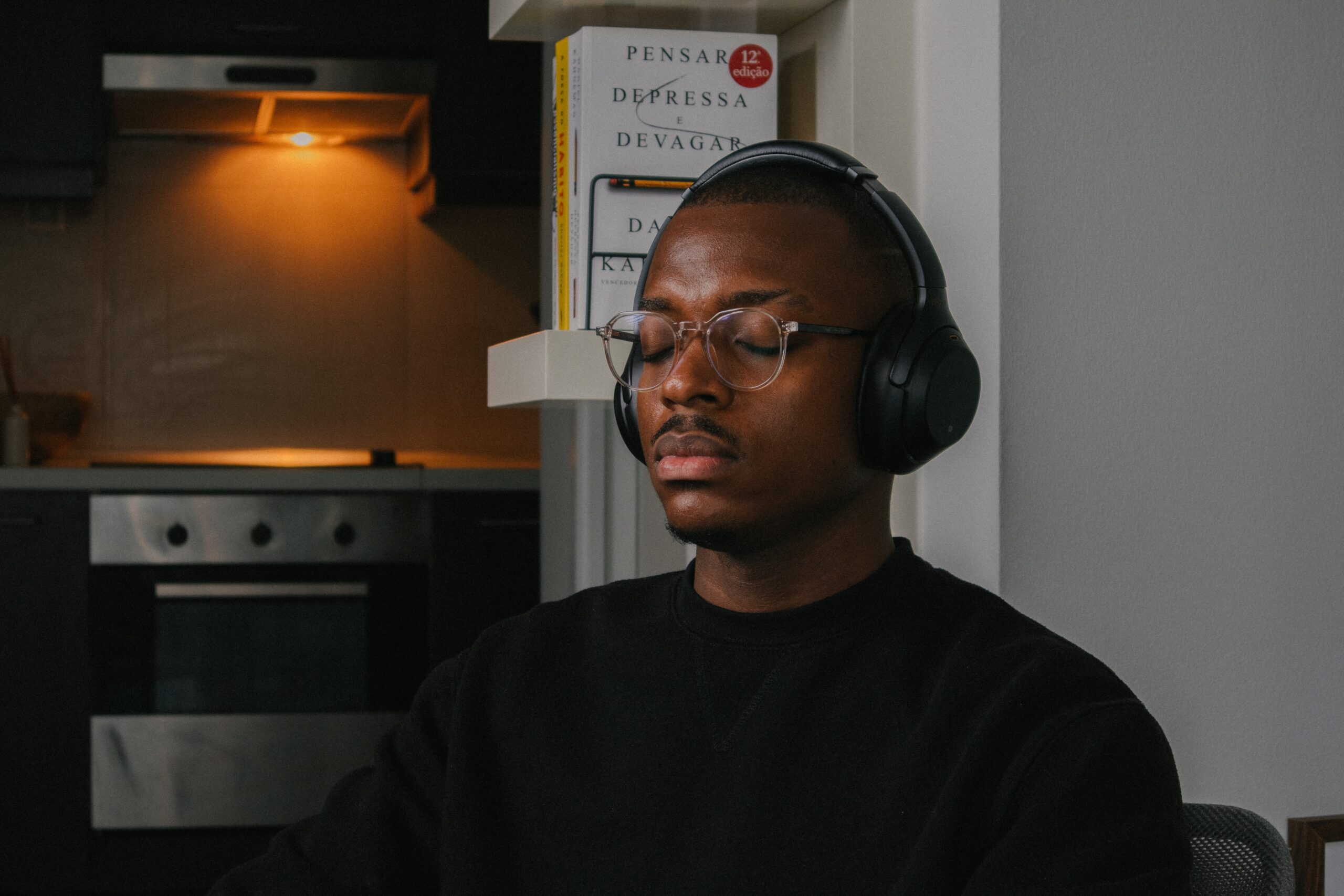Hi Chris! Welcome to our Creator Series. Tell us about yourself and how you got started as a writer.
A: Everything began in seventh grade. I was actually in remedial English with a small group of students working under a patient and encouraging teacher named Sheila Muldaur. She also happened to be reading a book by a local author: The Conduct of the Game by John Hough Jr. The book was about baseball but from the perspective of an umpire, and it was the first real book I read that engaged me and opened me up to the possibilities of narrative and worldbuilding. We all took turns reading it, and then we met the author in person. Later I would go to his house with my godfather, and John gave me copies of all his books. I was enamored with the writer mentality, lifestyle, solitude, etc.
In that same class we were assigned to write a story, and I wrote about a socially ostracized boy who befriends a buck in the nearby forests (aptly titled The Buck). It ended in tragedy, but the necessary change arc for the protagonist was there, it was a successful story. My teacher had me sit on a stool and read it aloud to the entire class – meaning the kids in the non-remedial English class. They applauded, and right then and there I knew there I’d found my calling.
Q: When did you know you wanted to pursue your career as a writer?
A: When I published my first poems in a literary magazine around age 16 or 17 and saw that there was a larger audience. But I was also aware that few succeed in a career as a writer on the writing alone and that I would need a diverse skill set, which includes but is not limited to: editing, ghostwriting, coaching, content writing, marketing & branding, and other tangential skills like design and conceptualization. So while I make very little money off my own writing, I make a living working in the industry, mainly through editing and ghostwriting.
Q: Let’s talk about Heliophobia! What inspired your debut novel and the creation of its main character, Murray Sandman?
A: I now live in Finland, where the sun is either omnipresent or in hibernation, depending on the season. Over time I’ve developed a weird relationship with the sun and have used it to displace my own issues, so I figured there was something comical and off-kilter to explore there. The book really just stemmed from the first page or so, which was a writing experiment, and people responded to it, so I kept working on the premise over the years. It evolved into a more darkly comic story in the latter versions, and I wanted to write something sadly funny and entertaining and not necessarily profound. There’s simply not enough humorous literary fiction out there! Life is dark and hard and literature capitalizes on that. So I sought to add some humor to the mix.
Q: Your stories have been published in numerous multiple literary journals and publications. Are these all fictional works – do you prefer writing fiction over non-fiction?
A: Yes, fiction is my go-to genre, though I’ve written and published some essays and articles. Fiction allows us to bend reality and compress spans of time into paragraphs or expand moments into great swaths of writing, and in fiction we’re able to layer themes more easily and get into deeper truths. In nonfiction, truths arise from realizations while reflecting on past actions. I guess I just have a vivid imagination, and I get a lot of my ideas from both my dreams and the bizarre situations I experience and marginal characters I encounter.

Q: As an author with a small press, what are some of the obstacles or challenges you’ve had to overcome? What are some of the biggest changes you’ve noticed in the publishing industry within the last five years?
A: The industry is in flux, but it’s been in flux for decades. Now people are reading on their phones and reading less and less overall and yet the book remains a foundational element of culture. So we’re in a weird moment. I think the book is due for a bit of a renaissance or a rethinking. Personally, I’d like to see more art and music incorporated into the reading experience, but past attempts to technologize the book have failed.
Small presses are both a blessing and a challenge. They are the backbone of the industry, but they’re labors of love. They offer less marketing support, so authors are left to do a lot of the legwork themselves. That’s kind of unfair. We’re not experts in it, and we may quickly tap out our social circles. Authors who are on the latest and most popular social media channels tend to market themselves really well, but how do they have time for writing? Social media takes so much work. And sales shouldn’t rely on social media… but the sad truth is that it does.
Q: In addition to the recent release of Heliophobia, are there any other creative projects in the works?
A: Yes, I’m well into my next project, which is radically different in subject matter, tone, and scope. I’m working well outside my comfort zone, which is how we should always operate. I also always have short fiction projects going on, so there’s never any downtime, for better or worse. I have a couple other novels in the drawer too; one publishing deal fell through during the pandemic, and I gave up on another because the contract was sketchy. I also recently won a small contest and earned a Pushcart Nomination, which I’m proud of.
Q: We appreciate you visiting with us on Creator Series! Before you go, tell us your favorite quote or mantra and why.
A: I am guided by three quotes in my work; I’ll paraphrase the first two.
Director Michel Gondry said that for an idea to be really good, it has to border on being really stupid. I truly agree.
The second comes from Zadie Smith, who says that writers should look at their work from the viewpoint of a critic or, more harshly, our worst enemy.
The third is from Emil Cioran, who says: “Write books only if you are going to say in them the things you would never dare confide to anyone.”
Q: Is there anything you learned from the experience of publishing your first novel that you’d like to share?
A: I learned that the corniest of cliches is true: you have to believe in yourself—because no one else will. That’s the cynical, heartbreaking side of the cliche. Only your closest friends and family will believe in you, but even that has its limits. Against all odds, you have to stick to your vision and risk embarrassment and failure, because the world wants you to fail. The creative marketplace is cluttered with projects large and small, and it doesn’t want you to join it.
That’s also why we have to come out in force to support other creators. Buy that record your friend put out, even if it’s not your genre. Buy their book, even if you don’t like to read or if it doesn’t suit your tastes. If you can’t afford to buy it, promote it. Promotion costs you nothing. Just support them in some way, even if only a gesture. It will mean a lot to the creator, and it will eventually come around when you launch your own work.
Thanks for having me and for supporting writers and creators, Keetria!
Connect with Christopher X. Ryan
Website: www.christopherxryan.com
Social/Product links: Amazon Bookshop
Keetria is an entrepreneur, wellness advocate, and brand strategy coach for creatives & entrepreneurs with 16 years of public relations expertise working with some of the world’s leading brands, startups, media personalities, and entertainers. If you want to work together, don’t hesitate to reach out!








